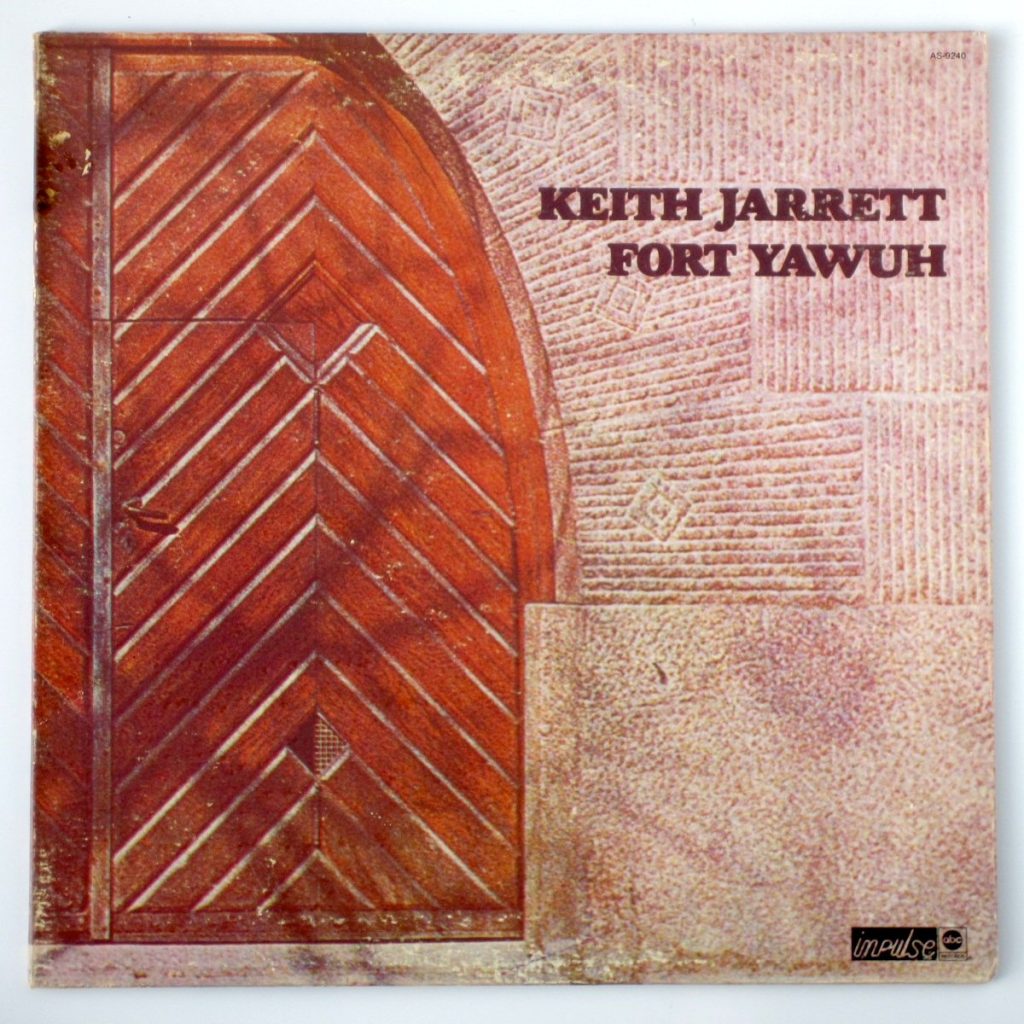Keith Jarrett’s “American” quartet, comprised of Jarrett, Dewey Redman, Paul Motian, and Charlie Haden plus contributions from percussionist Guilherme Franco, generally gets short shrift in discussions of the mercurial pianist’s career. During the time this quartet recorded eight albums with this group for Impulse! Records he also recorded a number of his improvised solo piano albums and some work with his “European” quartet (Jarrett, Jan Garbarek, Palle Danielsson, Jon Christensen). The work of the American quartet is warmer and often more vital than the more austere work he went on to perform, despite the fact that the group is freer and more attuned to the avant-garde aesthetic than most of Jarrett’s ensembles.
Visit the Keith Jarrett Artist Page
Fort Yawuh is one of the group’s best efforts, a series of live performances that demonstrate the many different aspects of the group. “(If the)Misfits(Wear It),” the album opener, is boppish and recalls Ornette Coleman, though you can hear traces of the gospel influence that Jarrett brought to bear on the European quartet recordings. Redman offers a lexicon of avant-garde tenor sounds, his cries and shrieks sounding less noisy and more evocative of the human voice today than they may have come across at the time. “Fort Yawuh” is a lyrical piece on which Redman plays with incredible beauty. Certainly he should be recognized as one of the best post-Coltrane tenor players to come along.
“De Drums” works up a nice groove and allows for the aforementioned gospel and even some blues influence to come to the fore, while “Still Life, Still Life” demonstrates a Bill Evans influence as well as much of the classical influence of Jarrett’s solo piano work. The album closer, “Roads Travelled, Roads Veiled” is a free jazz exploration built on Motian’s African-inspired drumming and some of Haden’s steady, melodic bass work.
This is a really essential Jarrett album and a side of his music you don’t get to hear on his numerous ECM releases. For those with some time, money, and interest, the two collections The Impulse Years, 1973-74 and Mysteries: The Impulse Yearhttps://amzn.to/314Iyzzs 1975-77 provide access to all eight (including this) of the American quartet’s albums, most of which are domestically out of print, and they are well worth the money. If you are unsure or just want to check out this group, Fort Yawuh is an excellent entry point.
